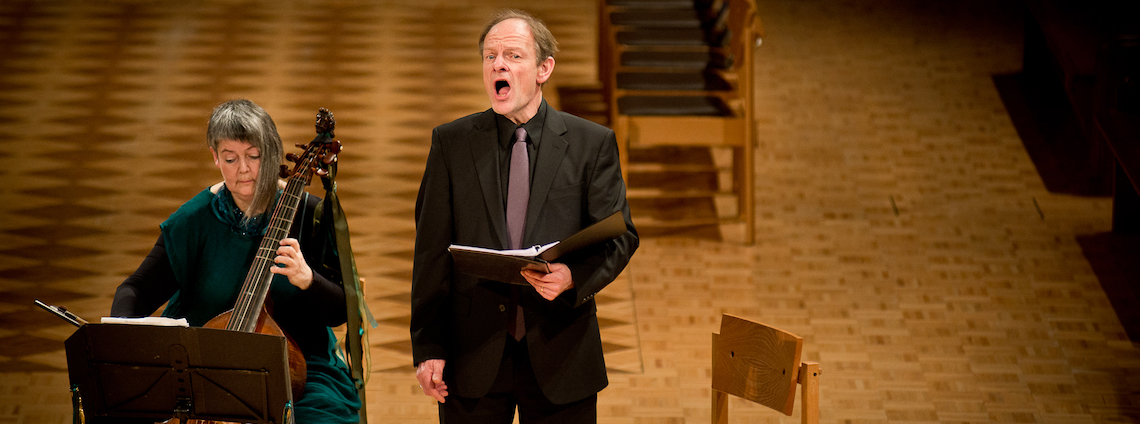Christ Church Cathedral | Map
Charles Daniels, tenor; Pacific Baroque Orchestra; Alexander Weimann, music director; Chloe Meyers, violin; Paul Luchkow, violin; Beiliang Zhu, gamba; Natalie Mackie, violone; Soile Stratkauskas, flute; Michel Angers, lute
The great English tenor Charles Daniels joins forces with members of the Pacific Baroque Orchestra and conductor Alexander Weimann for a mixed programme of music from the 16th, 17th and 18th centuries inspired by myths from Ovid’s Metamorphosis.
Charles studied at King’s College, Cambridge, and at the Royal College of Music in London. He has a prolific recording legacy having made over 90 recordings ranging from the earliest Renaissance music through to the contemporary repertoire. Charles performs frequently throughout Canada where he works with Tafelmusik Baroque Orchestra, Early Music Vancouver and the Pacific Baroque Orchestra, Les Voix Humaines, Toronto Consort, and at the Montreal Baroque Festival.
“Daniels’ sense of absolute authority provided a value-added demonstration of just how astonishing this music can be in the hands of a true master singer.” – The Vancouver Sun
Supported by Vincent & Zelie Tan
Click here for information about parking around / transiting to Christ Church Cathedral
Programme
G.P. Telemann: Concerto for Flute, 2 Violins and Continuo in G major (TWV 51:AnhG1)
(Allegro ma non troppo, Adagio, Allegro)J.S. Bach: Trio sonata for 2 Violins and Continuo in G major (BWV 1038)
(Largo, Vivace, Adagio, Presto)G.P. Telemann: Paris quartet for Flute, Violin, Cello and Continuo in E minor (TWV 43:e4)
(Prélude – A discretion, Gay, Vite, Gracieusement, Distrait, Modéré)INTERMISSION
J.S. Bach: Sonata for Flute and Harpsichord in B minor (BWV 1030)
(Andante, Largo e dolce, Presto)G.F. Handel: Sonata for Violin and Continuo in G minor (HWV 364)
(Larghetto, Allegro, Adagio, Allegro)G.B. Pergolesi: Concerto for Flute, 2 Violins and Continuo in G major
(Spiritoso, Adagio, Allegro Spiritoso)
Programme Notes
This evening we tour Europe with music of mental and physical transformations. I’ve used Ovid’s Metamorphoses as a starting point: his tales mix love, violence and death with people transformed from one bodily shape to another by vengeful gods and goddesses.
Music has its own transformative power, taking our minds from the quotidian and conjuring emotions, atmosphere, distant times and places.
We begin in England in the zenith of the lute song era.Besides the famous John Dowland, many other fine composers were active. John Danyel’s Coy Daphne gives us two takes on Apollo’s wooing of the nymph Daphne: her father changes her into a laurel tree just before Apollo catches her. The man takes Apollo’s side, accuses Daphne of timidity and points to a battered tree being all that remains of her. The woman (Anne Greene, dedicatee of Danyel’s songbook) points to the nymph’s intact honour, saying‘…she rests still greene, and so I wish to be’ .
Philip Rosseter was associated with poet-composer Thomas Campion, his songs appearing in one of Campion’s songbooks. In Shal I come if I swim the luckless lover tells of Hero, priestess of Sestos, who fell in love with the young Leander. He swam to her across the Hellespont, guided by Hero’s candle in the temple window. But their story ended in their deaths, so it’s doubtful if the singer’s love looked viewed the Hero comparison favourably.
William Lawes was a leading composer in Charles I’s reign. The mythic reference is misty in William Cartwright’s poem Whiles I this standing Lake,: the dying poet mourns Hylas, the young prince taken on by Heracles as his arms bearer after his father was killed in battle. He disappeared near Pegae. There are two accounts: the classical version has Hylas kidnapped by water-nymphs with whom he then falls in love, but in another version he was crushed under a statue while rescuing a gigantic brooch pin for Heracles. This mourner is mysterious, neither Heracles nor a water-nymph, but Lawes’ responds captivatingly to Cartwright’s portrayal of mournful nature, raven, bittern, owls and wolf, responding to the lover’s imminent demise.
Sen. Baptist’ is a mystery composer in London musicbooks around 1680: Lullian dances, and English songs by others appear under his name. ‘Senior’ indicated an Italian, Spanish or Frenchman . Our songs tonight seem to be by different composers. What art thou, Love seems in the prevailing London style: maybe the composer wished for more musical credit by claiming foreign origins. Jacob Allestry’s poem lays out unflinchingly the downsides of how love can transform you.
To warmer climes, Venice, Modena, Rome. Tempro le cetra, from Claudio Monteverdi’s 7th madrigal book, shows us a musician who tries to honour Mars in song, but cannot, since Venus orders his lyre only to play love songs – thus the goddess of love overpowers the god of war. Rich sinfonie, music of flowers and dances overcome martial motifs, despite the trumpet’s ascription as sublime, associated with monarchs and divine judgment.
Sigismondo D’India, nobleman and musician, wrote both poem and music of Orpheus’ lament Che veggio ohimè. He illustrates Orpheus’ desperation musically with striking key changes such as Bb to E major, unprepared dissonance and recitative the opposite of what D’India called the ‘tendency for all monodies to sound the same’. At one point Orpheus threatens to hurl himself into the flaming river Phlegethon in Tartarus. It is said to have consumed the goddess Styx, though the rivers united when Hades allowed her stream to flow.
Giovanni Kapsperger’s song Mentre vaga Angioletta, about a beautiful young singer, is also a technical manual of how the best singers might captivate people, showing the different effects various techniques have on their hearers. Kapsperger, a renowned lutenist who was well-connected in Rome, demanded much of its leading singers, to judge from the Libro Primo di Arie Passeggiate.
Our next destination is Louis XIV’s Paris. Louis-Nicolas Clérambault was the most celebrated composer of the Cantate Françoise, new musical genre of the early 1700’s. Cantates combine French sensibilities with architectural aspects of the Italian cantata, and love is often their subject. Their courtly hearers preferred happy endings, so in Orphée we only hear as far as Orpheus’ melting Pluto’s adamantine resolve enough for him to permit Euridice’s return to the world. Clérambault’s slender forces of violin, flute and harpsichord playing at treble pitch create a marvellous sheen for Orpheus’ persuasion of Pluto, in the remote key of B Major. The cantata ends not with Orpheus’ demise but celebrating the triumph of love.
Our second half returns to Rome. G F Handel had recently arrived there when he wrote Tra le fiamme to his patron Cardinal Pamphili’s text. His style has much of Corelli, with German traces. Pamphili’s text tells us of Daedalus’ famous wings. Not knowing only he could control them, he allowed his son Icarus to fly. Under his impetuous control they melted in the sun’s heat and he plunged into the sea. Pamphili tells us to use wings of imagination not material ones, to aspire to heavenly things. The text also warns the 22 year old Handel, involved with Prince Ferdinand de’ Medici’s mistress Vittoria Tarquini, not to fly above his station.
Our last set returns to London. Purcell’s Hark, Damon, hark, a pastoral dialogue, dates from the 1670’s when he was in his teens. We’re not told whose music ravishes the birds, but that its effects are like Orpheus’. As true Englishmen, though, the shepherds prefer something louder and more raucous.
John Blow’s Morph’us the humble God describes Morpheus as the god of sleep. In myth, he was one of Hypnos’ most powerful sons, a shape-shifter. But by Blow’s era, Morpheus is himself viewed as the god of sleep. John Denham’s poem refers to the oblivion brought by waters of the Underworld river Lethe, and infers that sleep, death’s cousin, only comes easily to those who don’t have much to worry them, thus, not much to rulers or the powerful. The Sen.Baptist of Where art thou, God of Dreams! might be a Italian Londoner, judging from the instrumental interlude. After complaining of Morpheus’ unreliability, the song soothes and charms, with some spice around ‘the evening dews’.
Our journey ends at peace, at the River Styx. Purcell’s Charon the Peacefull Shade invites conjures up the reposeful end to life, where Charon helps the soul cross from the mortal realm into the afterworld.
Charles Daniels, March 2018
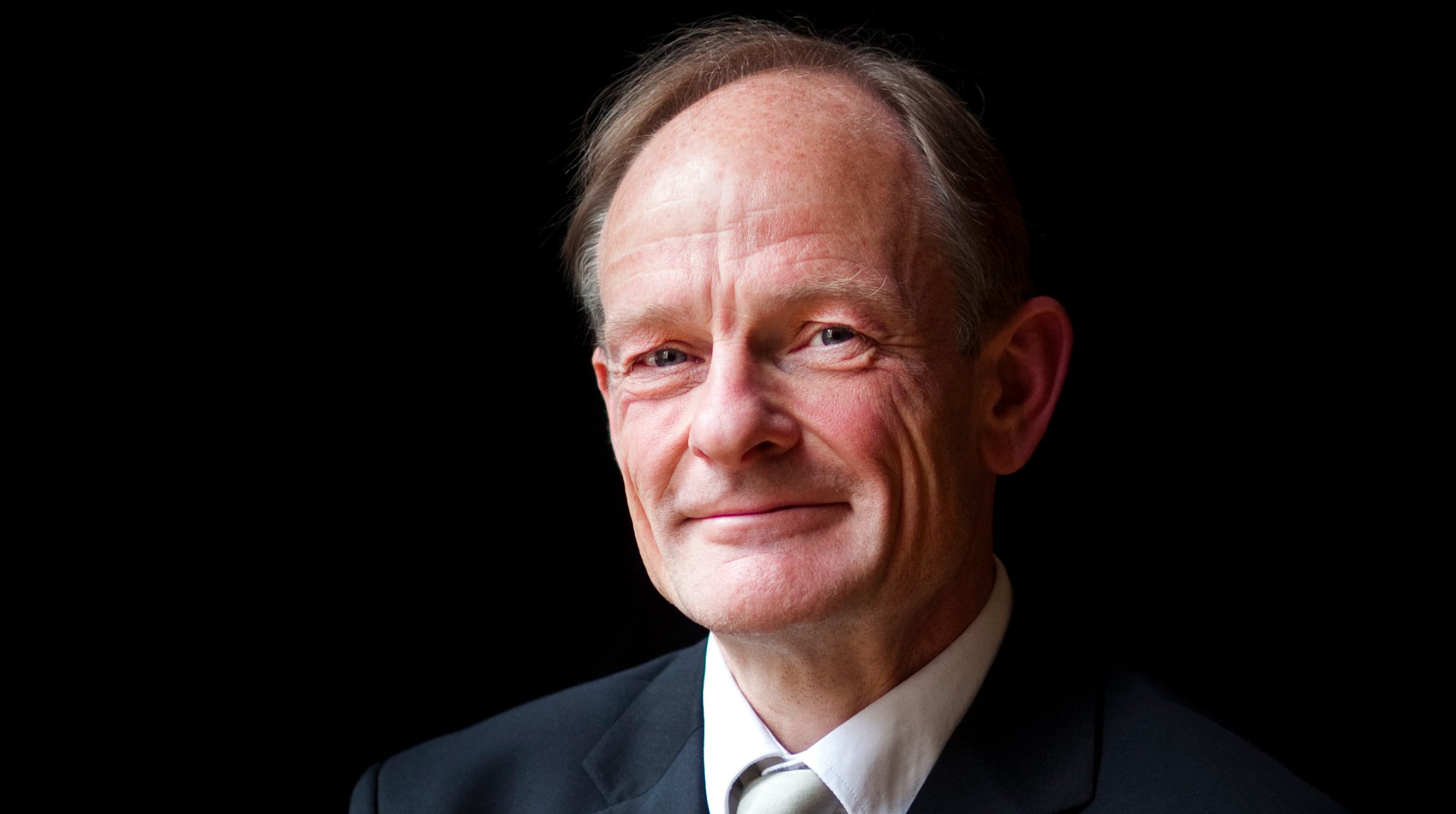
Charles Daniels, tenor
Charles Daniels is a noted interpreter of Baroque music, though his narrative gifts are praised for music as diverse as Machaut Virelais and Graham Treacher’s Visions (2016). His recordings include Monteverdi’s L’Orfeo with Andrew Parrott, Bach’s Matthäus Passion with the Bach-Stiftung; Schütz Weihnachtshistorie, Monteverdi’s Vespers and Purcell’s Fairy-Queen with the Gabrieli Consort; Heracleitus with the Bridge Quartet and Lambert airs with Fred Jacobs; Kilar’s Missa Pro Pace with the Warsaw Philharmonic; much Bach and recent Purcell releases with the King’s Consort.
He created the dual role of Ulisse and John Gregory Dunne to critical acclaim in last year’s Bayerische Staatsoper production of Il Ritorno d’Ulisse/Jahr des magisches Denken His concert appearances span the intimate and the grand, from BBC Radio 3 recitals with lutenist Elizabeth Kenny, domestic music of Bach for Nederlandse Bach Vereniging and Handel Chandos Anthems in their original setting of the Canons Estate church, to performances of Britten’s War Requiem (Canterbury, Lille) and Elgar’s Dream of Gerontius (Cardiff, Wroclaw). Recent concerts include Dowland in Japan with Les Voix Humaines, Viadana in Verona and Switzerland with Bruce Dickey, a Weckmann programme in Vienna’s Konzerthaus and the 50th birthday celebration in Oxford of Andrew Parrott’s Taverner Consort.
Charles’ reconstructions of Gesualdo’s Sacrae Cantiones à6 have been premiered by the Gesualdo Consort of Amsterdam and his completion of Purcell’s court Ode Arise my Muse was broadcast on Radio-Canada during the Montréal Baroque Festival. He is delighted to return to EMV for this summer’s Festival.
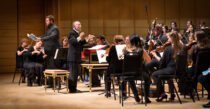
Pacific Baroque Orchestra
The ‘house band’ of Early Music Vancouver, The Pacific Baroque Orchestra (PBO) is recognized as one of Canada’s most exciting and innovative ensembles performing “early music for modern ears.” Formed in 1990, the orchestra quickly established itself as a force in Vancouver’s burgeoning music scene with the ongoing support of Early Music Vancouver. In 2009, PBO welcomed Alexander Weimann as Director. His imaginative programming, creativity and engaging musicianship have carved out a unique and vital place in the cultural landscape of Vancouver.
PBO regularly joins forces with internationally-celebrated Canadian guest artists, providing performance opportunities for Canadian musicians while exposing West Coast audiences to a spectacular variety of talent. The Orchestra has also toured throughout BC, the northern United States, and across Canada. Their 2019 East Coast Canadian tour with Canadian soprano Karina Gauvin culminated in a critically acclaimed album, Nuit Blanches, released by Atma Classique.
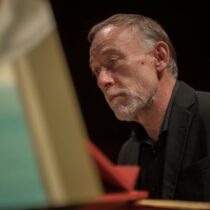
Alexander Weimann, music director
Alexander Weimann is one of the most sought-after ensemble directors, soloists, and chamber music partners of his generation. After travelling the world with ensembles such as Tragicomedia, Cantus Cölln, the Freiburger Barockorchester, Gesualdo Consort and Tafelmusik, he now focuses on his activities as Music Director of the Pacific Baroque Orchestra in Vancouver, Music Director of the Seattle Baroque Orchestra, and regular guest conductor of ensembles including the Victoria Symphony, Symphony Nova Scotia, Arion Baroque Orchestra in Montreal and the Portland Baroque Orchestra.
Alex was born in Munich, where he studied the organ, church music, musicology (with a summa con laude thesis on Bach’s secco recitatives), theatre, mediæval Latin, and jazz piano, supported by a variety of federal scholarships. From 1990 to 1995, he taught music theory, improvisation, and Jazz at the Munich Musikhochschule. Since 1998, he has been giving master classes in harpsichord and historical performance practice at institutions such as Lunds University in Malmö, the Bremen Musikhochschule, the University of California (Berkeley), Dartmouth College (New Hampshire), McGill University, Université de Montréal, and Mount Allison (New Brunswick). He now teaches at the University of British Columbia and directs the Baroque Orchestra Mentorship Programme there. He has received several JUNO and GRAMMY Award nominations – most recently, for the album Nuit Blanches with the Pacific Baroque Orchestra and Karina Gauvin.
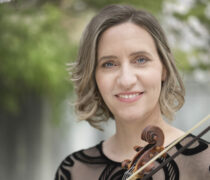
Chloe Meyers, violin
Violinist Chloe Meyers is a regular guest leader and orchestra member of baroque ensembles all over North America. She has worked with ensembles including Les Violons du Roy, Tafelmusik, the Montreal Symphony Orchestra, Ensemble Les Boréades, the Theatre of Early Music, Les Idées Heureuses and Les Voix Baroques. She recently joined the Pacific Baroque Orchestra as concertmaster and will continue to play principal second with Arion Baroque Orchestra in Montreal. Most recently she played first violin on a Juno Award winning recording of Handel arias featuring Canadian soprano Karina Gauvin on the Atma Classique label.
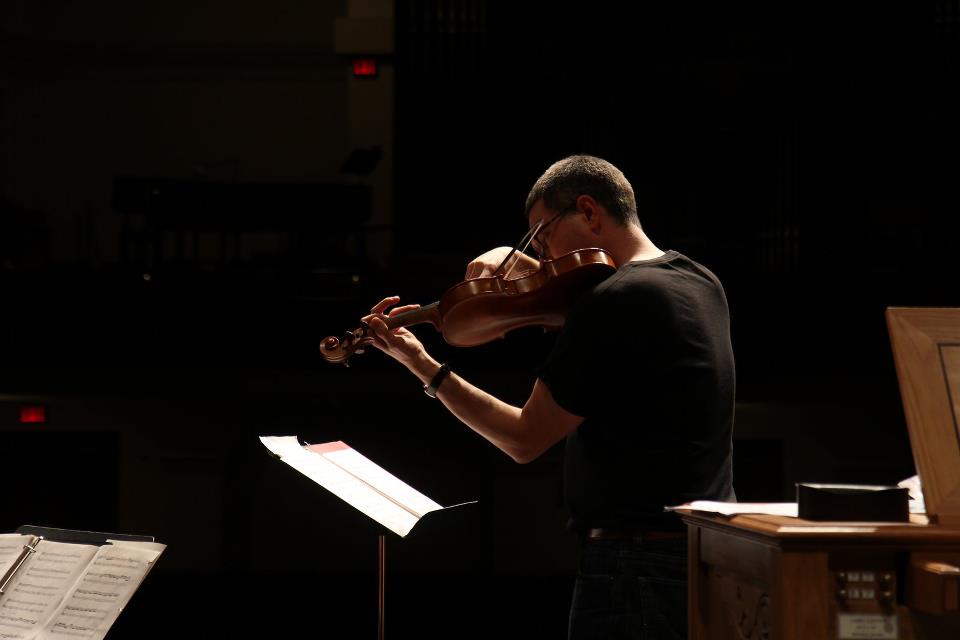
Paul Luchkow, violin
Paul Luchkow is a versatile violinist and violist whose activities cover the range of music from the 17th Century to the present day on modern and period instruments. In addition to the Victoria Baroque Players, he is a regular feature of Vancouver’s Early Music scene. Paul is a long-time member of the Pacific Baroque Orchestra and appears frequently in concerts for Early Music Vancouver, the Early Music Society of the Islands, as well as at Victoria’s Pacific Baroque Festival.
In demand as a leader, guest director, and educator, Paul has worked with Per Sonatori: Regina’s Baroque period-instrument ensemble, VoiceScapes and Spiritus Chamber Choir in Calgary, and he has given performances and masterclasses at universities across western Canada. As an adjudicator, Paul frequently hears and encourages young musicians across British Columbia.
A highlight of recent years has been his work with fortepianist Michael Jarvis and their exploration of Baroque, Classical and Romantic sonata repertoire on period instruments. They have two recordings: One of Hummel Sonatas (nominated for a Western Canada Music Award) for fortepiano and violin / viola on the Marquis Classics label, and a self-released recording of sonatas by Mozart. A third recording, Sonatas by the French composer Michel Corrette, will be released on Marquis in Spring 2017.
Paul makes his home in Victoria with his wife and children.
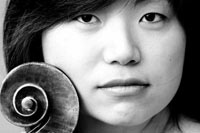
Beiliang Zhu, gamba
Beiliang Zhu won the 1st prize and the Audience Award at the 2012 International Bach Competition in Leipzig (Violoncello/Baroque Violoncello). She was the first string player to receive this honor for performance on a baroque instrument. She completed her Master of Music from the Juilliard School in Historical Performance with Phoebe Carrai (Baroque cello) and Sarah Cunningham (Viola da Gamba), her Bachelor of Music and a Performer’s Certificate from the Eastman School of Music. Beiliang is currently pursuing a Doctor of Musical Arts in Violoncello, under the guidance of Steven Doane, as well as a Master of Arts in Ethnomusicology at the Eastman School of Music.
Hailed by the New York Times as “particularly exciting”, and by the New Yorker as bringing “telling nuances”, and as being “elegant and sensual, stylishly wild”, Beiliang has given solo recitals at the Bach Festival Leipzig, Boston Early Music Festival, The Vancouver Bach Festival, the Seoul Bach Festival and the Helicon Foundation. She has also performed with internationally acclaimed artists and ensembles, such as William Christie, Masaaki Suzuki, Monica Huggett, Paul O’Dette, the Boston Early Music Festival Orchestra, Juilliard Baroque, the Philadelphia Orchestra and the Trinity Wall Street Orchestra. She won a section cellist position in the Rochester Philharmonic Orchestra while still an undergraduate and continues to hold the principal cellist position of Mercury Houston.
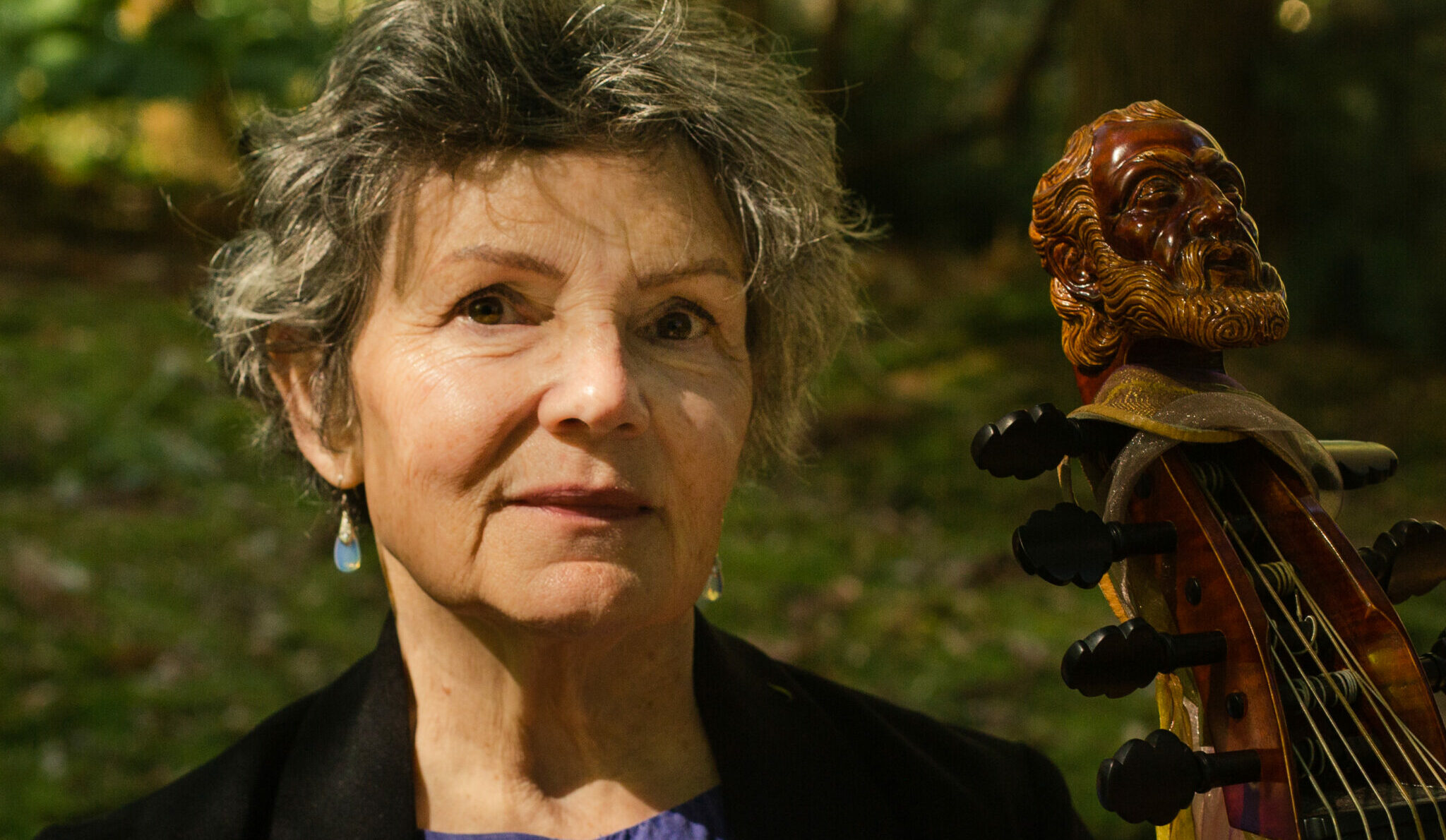
Natalie Mackie, violone
Natalie Mackie studied cello at the Conservatoire de Musique (Québec), followed by a degree from the School of Music, University of British Columbia. While at UBC she was introduced to the viola da gamba, and following graduation, she pursued further studies at the Koninklijk Conservatorium in The Hague. Natalie has played with many ensembles in Canada and the US, including New World Consort, Les Coucous Bénévoles, Tafelmusik, Portland, and Seattle Baroque Orchestras, Les Voix Humaines, Tempo Rubato, Les Voix Baroque, Oregon Bach Festival Orchestra, Victoria Baroque, and Vancouver Intercultural Orchestra among others. Natalie is a member of Pacific Baroque Orchestra and the chamber ensemble “La Modestine”- both Vancouver-based ensembles. She has toured throughout Canada, Europe, and the US and recorded for Radio France, German Radio, BBC, CBC, and NPR, as well as the Canadian label Atma Classique. Natalie is a regular performer in the Pacific Baroque Festival, held annually in Victoria, BC, and teaches in the Baroque Orchestra Mentorship Program at the University of British Columbia.
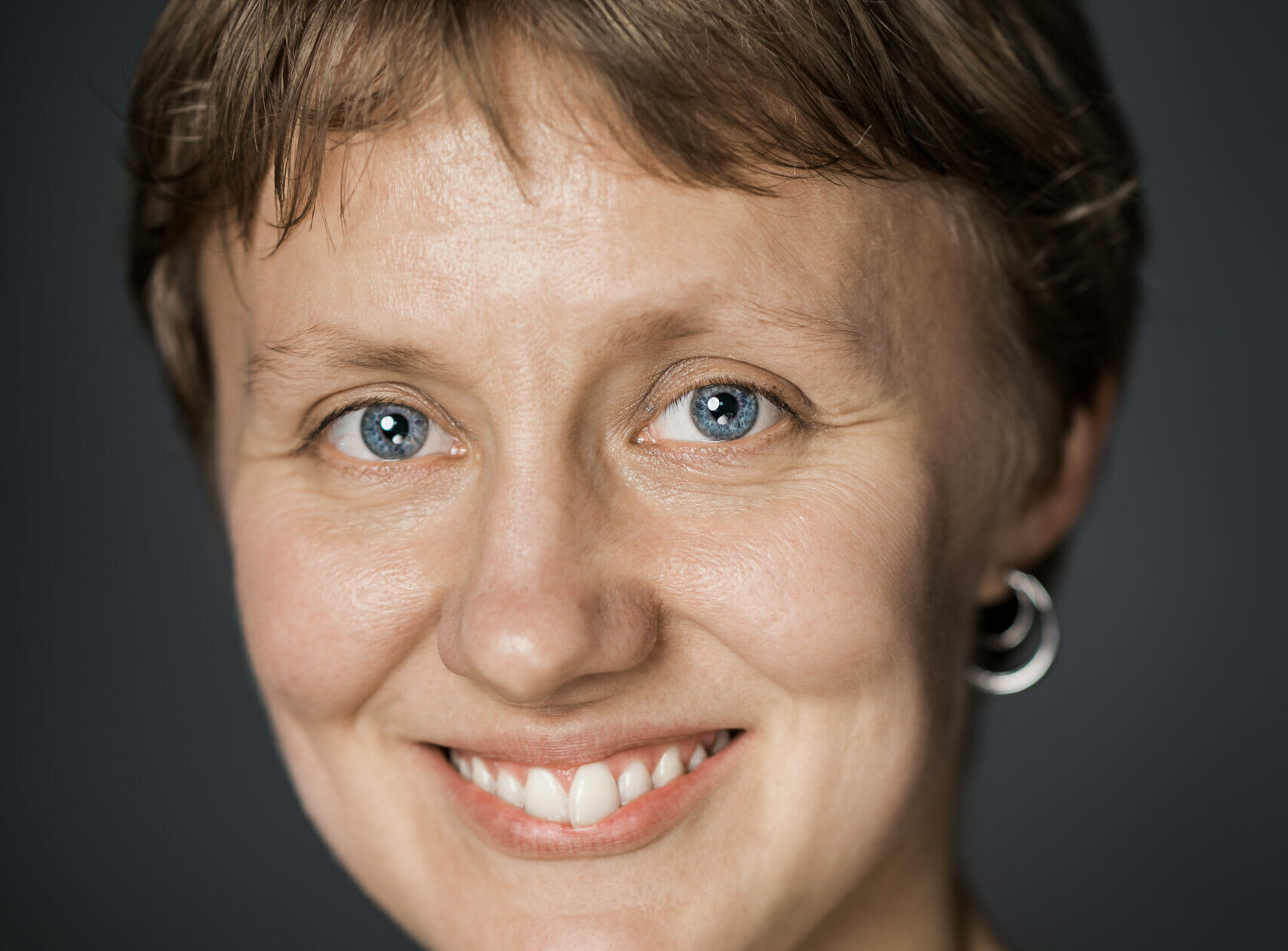
Soile Stratkauskas, flute
Finnish-born Soile Stratkauskas moved to Victoria, BC, in 2010 and has since established herself as the leading baroque flutist on the Canadian West Coast. She is a member of the Pacific Baroque Orchestra and regularly performs in Early Music Vancouver's concerts. Soile completed her undergraduate studies at the Royal Northern College of Music in Manchester, and gained her Master's degree at the Royal Academy of Music in London, UK, where she studied early flutes with Lisa Beznosiuk. Soile has performed with many prominent period instrument orchestras in the UK, including the Orchestra of the Age of Enlightenment and the Gabrieli Consort and Players, and has toured in Europe with these groups. Soile is the founder and artistic director of the Victoria Baroque, which, in addition to maintaining its own series, has given guest performances for Early Music Vancouver, Early Music Society of the Islands, ArtSpring, and the Cowichan Symphony Society. Soile teaches baroque flute at the University of British Columbia as part of Early Music Vancouver's Baroque Orchestra Mentorship Programme and is the artistic director of the Summer Baroque Intensive Programme at the Victoria Conservatory of Music supported by EMV and Victoria Baroque.
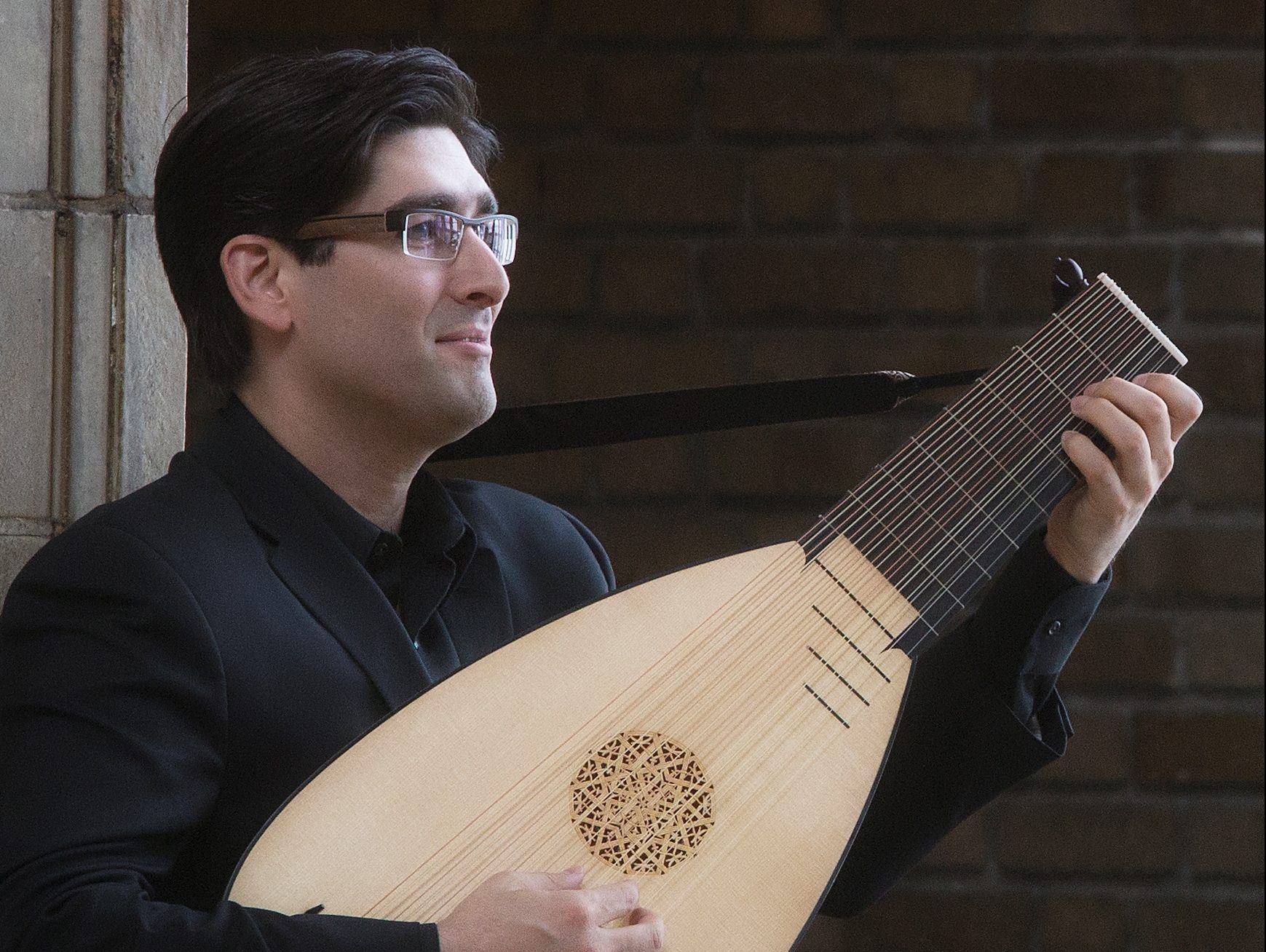
Michel Angers, lute
Canadian guitarist/lutenist Michel Angers collaborates in numerous artistic projects for various ensembles as a continuo player (Tafelmusik, Constantinople, Les Violons du Roy, Les Idees Heureuses, Les Poètes de l’Amérique Française and Consort Laurentia) and as a soloist throughout Canada, America, and Europe. He is also a recording artist for renowned Italian label Stradivarius. Angers values the honour of educating others and maintains a successful private studio. He is a sought-after mentor serving on faculty with the Orford Center for the Arts and the Lunenburg Academy of Music Performance.
Upon receiving his Master of Music degree from Laval University in Québec, Angers was awarded the highest distinction from the Quebec Music Conservatory. In 2005, Angers won the classical guitar category of the prestigious Canadian Music Competition.
Receiving Numerous grants by many cultural organizations, he has been a scholar of Tafelmusik Baroque Summer Institute, Oberlin Baroque Performance Institute (Lucas Harris) and Early Music America which gave him the opportunity to attend the Accademia d’Amore in Seattle to study under the direction of Stephen Stubbs. In 2011, Michel Angers won the Award of Artistic Creation presented by the Conseil des arts et des lettres du Quebec. Twice a grant holder of the Marco Fodella Foundation, Angers specialized in early music under Paul Beier, at the Academy of Music in Milan.

